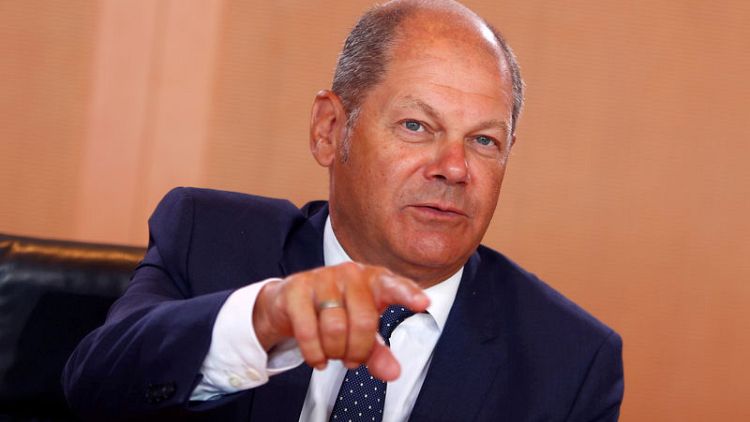BERLIN (Reuters) - German Finance Minister Olaf Scholz said he favours getting a binding deal on a European Union digital tax at a meeting of EU finance ministers in December and that he supported the French model.
"If the negotiations continue the way that they have been going, we'll still be in talks in 100 years. That is why I support the French model and want to offer the proceeds to the EU," news weekly Der Spiegel quoted Scholz on Monday as saying.
There has been discord among European Union member states over a proposed EU plan to tax big internet firms such as Google and Facebook on their turnover.
Germany called this month for a revision of the plan that would exclude from the proposed tax activities linked to carmakers.
French Finance Minister Bruno Le Maire said on Monday that an agreement was close to being struck.
Under a proposal from the EU's executive Commission in March, EU states would charge a 3 percent levy on the digital revenues of large firms that are accused of averting tax by routing their profits to the bloc's low-tax states.
The plan is aimed at changing tax rules that have let some of the world's biggest companies pay unusually low rates of corporate tax on their earnings.
But it requires the support of all 28 EU states and is opposed by a number of them, including small, low-tax countries like Ireland that have benefited by allowing multinationals to book profits there on digital sales to customers elsewhere.
Cooperation on taxes at the EU level exists in some areas, such as regulation on VAT, though setting taxes in principle remains the business of member states.
Scholz also said the EU should push ahead with minimum corporate tax rates and effective taxation of digital companies from January 2021 if states fail to reach an international agreement on tax avoidance. "We are in principle in agreement with our French friends on such a two-step strategy," he said.
(Reporting by Michelle Martin with additional reporting by Tassilo Hummel; Editing by Maria Sheahan and Mark Heinrich)



